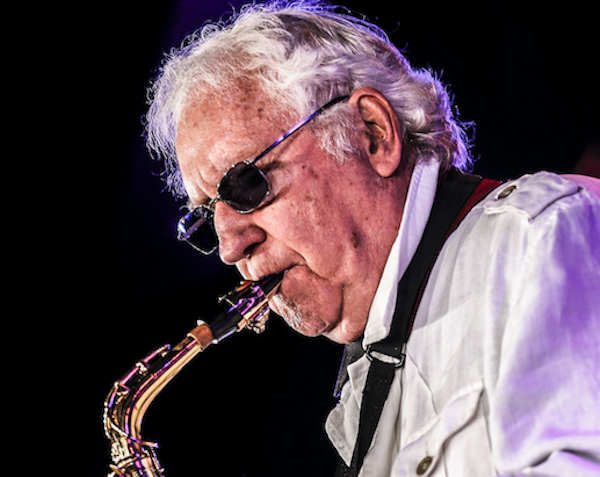AFRO-AMERICAN MUSIC INSTITUTE CELEBRATES 36 YEARS
http://www.indiegogo.com/projects/building-today-for-tomorrow/x/267428
Pain Relief Beyond Belief
http://www.komehsaessentials.com/
PITTSBURGH JAZZ
From Blakey to Brown, Como to Costa, Eckstine to Eldridge, Galbraith to Garner, Harris to Hines, Horne to Hyman, Jamal to Jefferson, Kelly to Klook; Mancini to Marmarosa, May to Mitchell, Negri to Nestico, Parlan to Ponder, Reed to Ruther, Strayhorn to Sullivan, Turk to Turrentine, Wade to Williams… the forthcoming publication Treasury of Pittsburgh Jazz Connections by Dr. Nelson Harrison and Dr. Ralph Proctor, Jr. will document the legacy of one of the world’s greatest jazz capitals.
Do you want to know who Dizzy Gillespie idolized? Did you ever wonder who inspired Kenny Clarke and Art Blakey? Who was the pianist that mentored Monk, Bud Powell, Tad Dameron, Elmo Hope, Sarah Vaughan and Mel Torme? Who was Art Tatum’s idol and Nat Cole’s mentor? What musical quartet pioneered the concept adopted later by the Modern Jazz Quartet? Were you ever curious to know who taught saxophone to Stanley Turrentine or who taught piano to Ahmad Jamal? What community music school trained Robert McFerrin, Sr. for his history-making debut with the Metropolitan Opera? What virtually unknown pianist was a significant influence on young John Coltrane, Shirley Scott, McCoy Tyner, Bobby Timmons and Ray Bryant when he moved to Philadelphia from Pittsburgh in the 1940s? Would you be surprised to know that Erroll Garner attended classes at the Julliard School of Music in New York and was at the top of his class in writing and arranging proficiency?
Some answers can be gleaned from the postings on the Pittsburgh Jazz Network.
For almost 100 years the Pittsburgh region has been a metacenter of jazz originality that is second to no other in the history of jazz. One of the best kept secrets in jazz folklore, the Pittsburgh Jazz Legacy has heretofore remained mythical. We have dubbed it “the greatest story never told” since it has not been represented in writing before now in such a way as to be accessible to anyone seeking to know more about it. When it was happening, little did we know how priceless the memories would become when the times were gone.
Today jazz is still king in Pittsburgh, with events, performances and activities happening all the time. The Pittsburgh Jazz Network is dedicated to celebrating and showcasing the places, artists and fans that carry on the legacy of Pittsburgh's jazz heritage.
WELCOME!
Groups
Duke Ellington is first African-American and the first musician to solo on U.S. circulating coin
MARY LOU WILLIAMS
Saxophonist Lee Konitz Dies At 92
Saxophonist Lee Konitz Dies At 92
By DownBeat I Apr. 15, 2020

Lee Konitz performs at the Blue Note in New York City on Oct. 9, 2017.
(Photo: Frank Eppler)Chicago-born alto saxophonist Lee Konitz passed away April 15 at the age of 92. WBGO confirmed his death, adding that “the cause was pneumonia, related to COVID-19.”
A recipient of an NEA Jazz Masters fellowship, Konitz was revered for his work alongside Miles Davis on 1949 and 1950 recordings that eventually were compiled into Birth Of The Cool.
Konitz would go on to record dozens of albums during a career that spanned nine decades and worked with everyone from Kenny Burrell and Art Farmer to Ethan Iverson and Dan Tepfer. Recorded around the same time as the sessions with Davis, Subconscious-Lee—an early leader date that also counted pianist Lennie Tristano—exhibited a bop influence, even as the saxophonist helped to define the “cool” sound that would rise to prominence on the West Coast. The album, too, offered a snapshot of Konitz’s playfulness and wit. In addition to the title track, there was, of course, “Ice Cream Konitz.”
Konitz retained an essential creative spirit in the studio over the years, issuing Old Songs New (Sunnyside) with arranger Ohad Talmor in November 2019.
“The bandleader luxuriates in the lush, slow to medium-tempo interpretations that evoke the mid-century radio orchestras of his youth on numbers like ‘Goodbye’ and ‘I Cover The Waterfront,’” Alex W. Rodríguez wrote about the album in the February 2020 edition of DownBeat. “It feels as if the 92-year-old saxophonist—born not too many years after Charlie Parker—is at work evoking the ghost of Charlie Parker With Strings.”
In a 2017 interview with DownBeat, Konitz discussed a concept that he’s closely associated with, the contrafact (a musical work based on an earlier composition): “That’s a technique I just picked up along the way from whoever invented it, whether it was Bird or whoever. I thought it was a legitimate addition to the vocabulary. I consider it equivalent in some way to adding homemade lyrics to a melody that you could deliver the standard changes on. But then you change them somehow. And that’s kind of how I approach that. But I didn’t have that particular phrase for the action—contrafact.” DB
Tags:
Replies to This Discussion
-
Permalink Reply by Roberta Windle on May 27, 2020 at 12:11am
-
RIP
-
© 2025 Created by Dr. Nelson Harrison.
Powered by
![]()